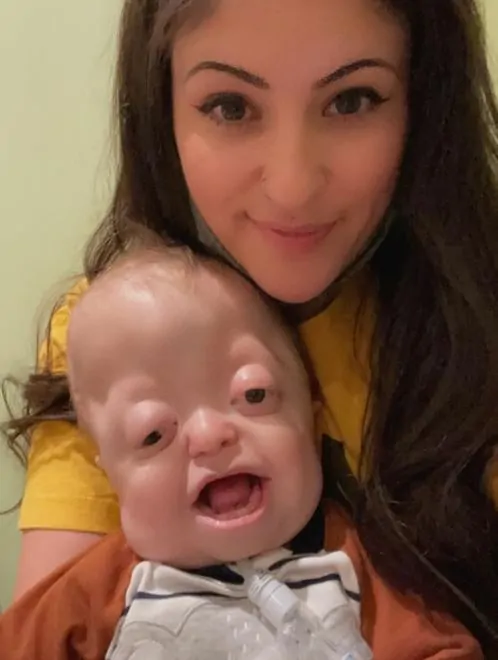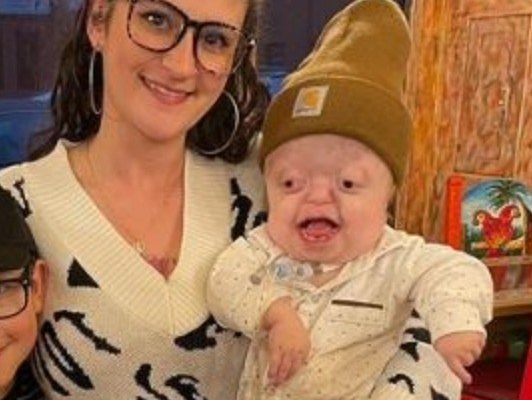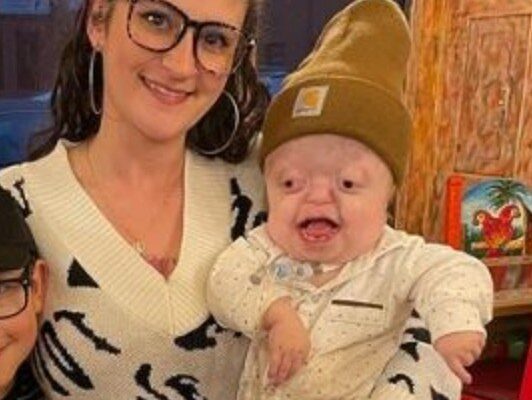Most people use social media as their primary form of communication these days. It’s customary to send images of your children to friends and family so they can enjoy them.
Like other young mothers, she posts on social media, but the comments on her images and how her child is handled are radically different. But she has some remarks to make…
Young mother Natasha is adjusting to parenting. She enjoys posting images of her one-year-old son Raedyn online, as many other new mothers do. But unlike most mothers, she experiences severe internet bullying because of how her son looks.

She uploads videos of herself and Raedyn to the well-known social media site TikTok. And she frequently receives requests to cease publishing images or videos of her son in the comments section of each post, if not hundreds of them.
But Natasha warns her detractors: “I won’t quit… He is perfect, and just because he looks different doesn’t make him any less so,” she asserts.
She receives many emails and comments with the subject line, “What’s wrong with your child? Why does your child have that appearance?”

Raedyn, a young child, was born with Pfeiffer syndrome, which results in deformities of the limbs, face, and skull. Natasha, however, believes that her son is flawless, so whenever she gets the chance, she puts videos of him online.
But since people are mean, she narrates some of the frequent remarks she encounters, which typically include statements such as, “What quality of life will he have?” and “Why would you make him live like that? You are allowing him to live such a wretched existence.”
As if internet trolls weren’t cruel enough, Natasha also receives real-life remarks from individuals. In public, she claims that strangers approach her and ask her impolite questions such as, “People just come up to me and ask: ‘What’s wrong with your child? Or why does your child look that way?’” That is not the appropriate way to address a human being.

Due to the constant questions, she would undoubtedly receive, she even finds it difficult to be in public. “It is exhausting to repeatedly explain my son’s health problems,” she confessed.
Because of her son’s appearance, she finds it difficult to understand the level of interest in him. She asks, “Does he appear different? Yes, but that doesn’t diminish him in any. He lives the same life as any other kid.
“He deserves life, acceptance—I will fight for that until the day I die,” the speaker continued.
Especially when she is going about her day and is suddenly approached by someone who is “curious” and has questions, she does not like the care people have for her.
She said that people need to realize that she is just a mother and that her son is still a little child, and that his illness does not control their lives.

“My son looks slightly different, but that doesn’t mean he is just a lesson to give the world,” the worn-out young mother continued. Explaining my son’s health issues to others and repeating the same diagnosis can be mentally and emotionally draining.
We are only a typical family. I hope everyone will one day accept persons with disabilities and not stereotype them based on their appearance or limitations.
It truly is heartbreaking to observe that folks are still quick to criticize those who are in any manner dissimilar to them in this day and age. We can only hope that people will start being more inclusive and kind.
We’re sending Natasha and young Raedyn our love. Send them your best wishes along with us.





